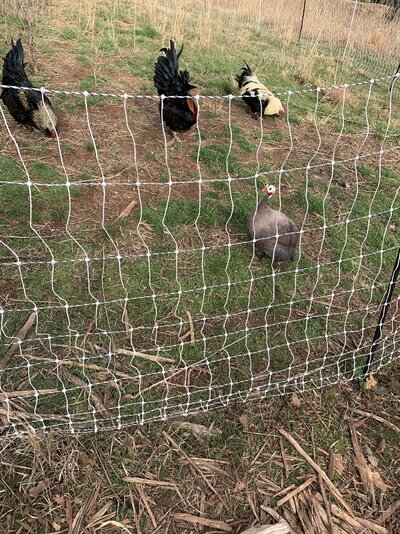I've kept chickens before in a suburban coop environment. We got rid of them before moving cross country to a big piece of land we are developing as a small hobby farm. I'm presently building a mobile chicken coop trailer to house a few dozen chickens. The coop will be night digs only, and outside of the coop, I'll theoretically keep them contained and protected using electric chicken netting, the trailer will be moved every several days to keep them in fresh grass and bugs. I would like to grab say a dozen guineas to eat ticks and be extra vigilant, however I've never kept them before. I know they have a tendency to fly up into trees to roost. I'm basically resigned to the first year of having them be a trial in regards to whether I can stand their noise, how they do in this system, etc. If they split, then they split. Will brooding them in the mobile coop/trailer help them to "home" to the trailer? How about raising them alongside hens?
Thanks!
Laurel
Thanks!
Laurel




